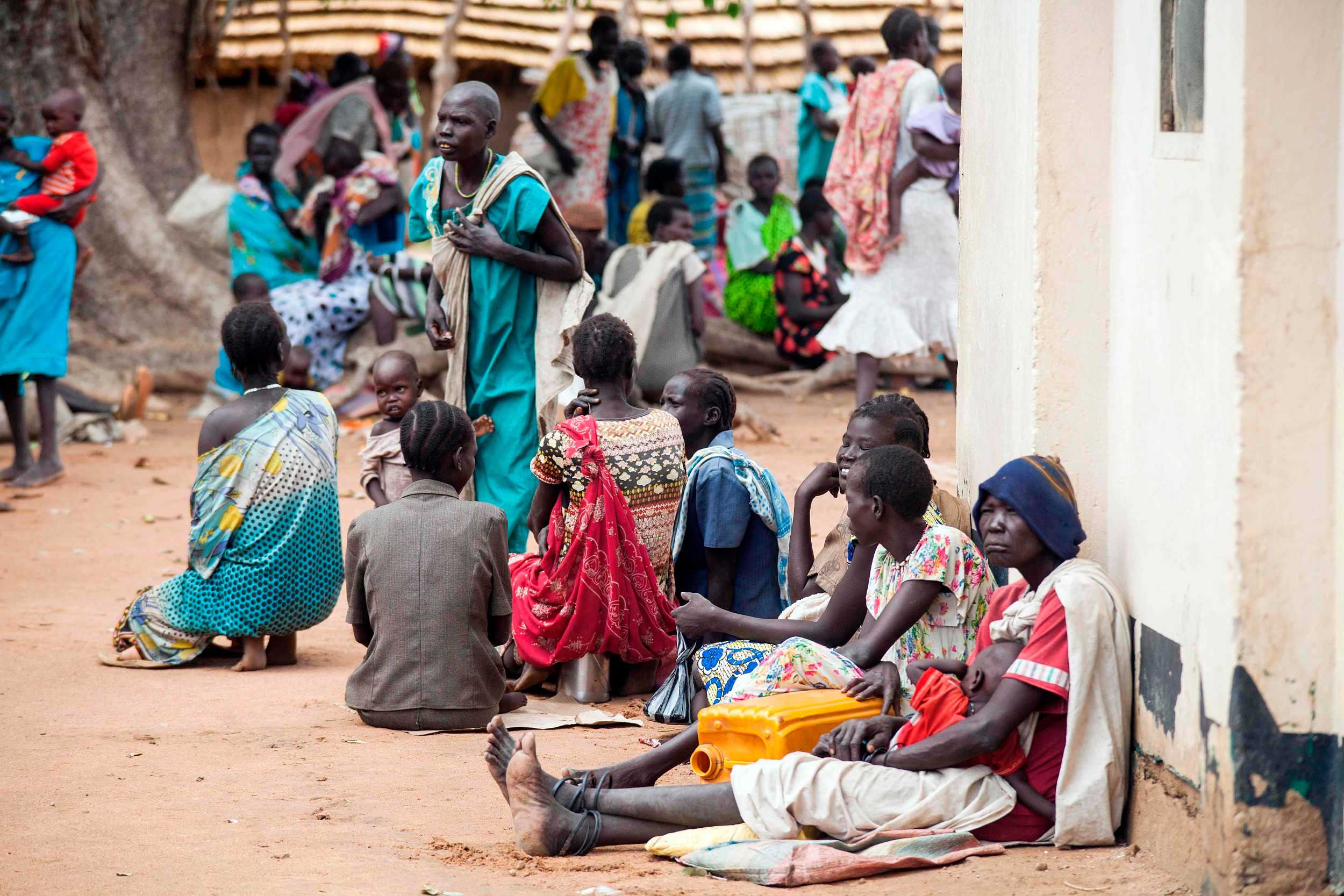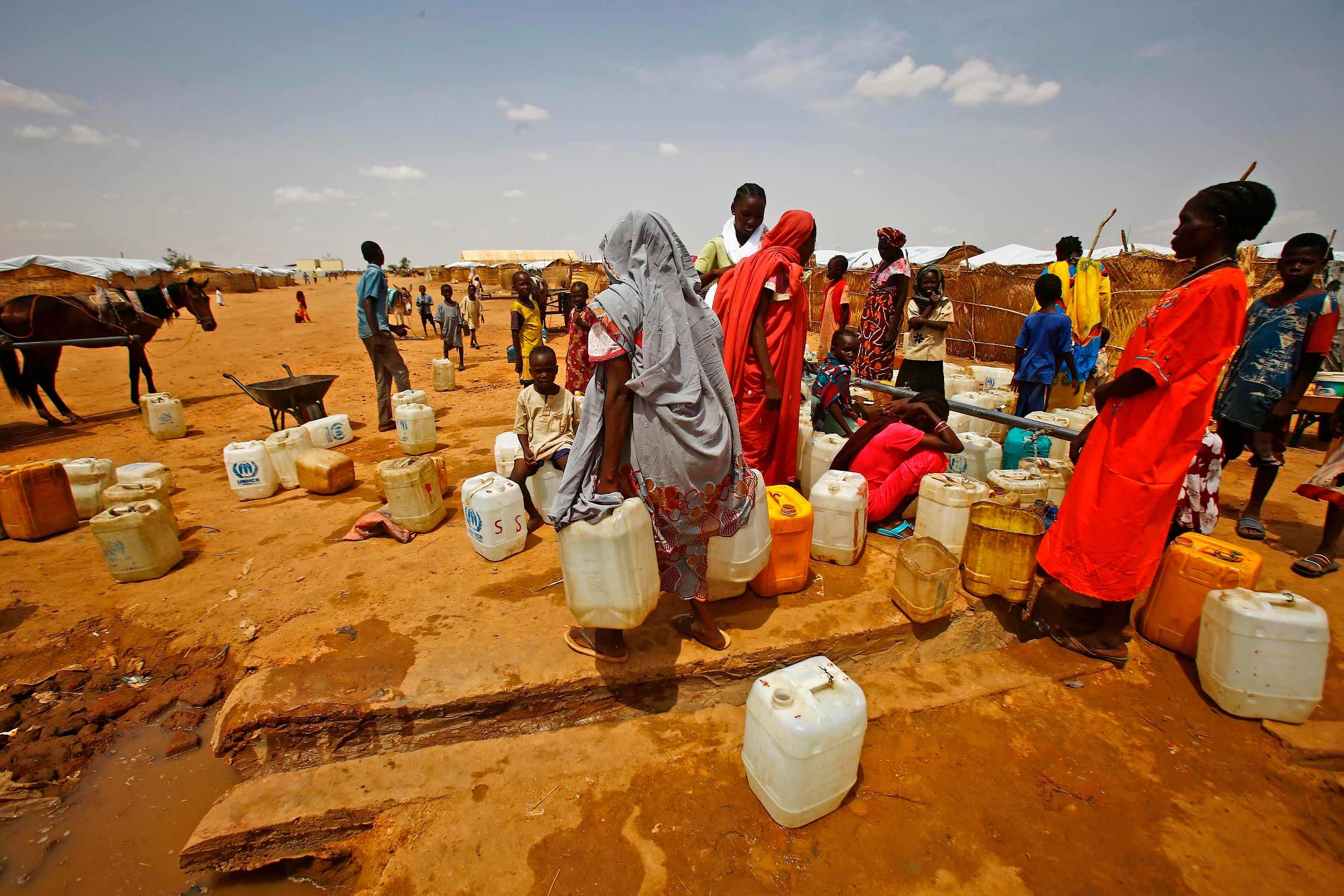South Sudan is no longer classified as being in famine, according to a report released on Wednesday by UN aid agencies. But the hunger situation remains critical across the country as the number of people struggling to find enough food each day continues to climb.
"The accepted technical definition of famine no longer applies in former Unity State's Leer and Mayandit counties where famine was declared in February," according to a joint statement from the UN children's agency UNICEF, the World Food Program (WFP), the Food and Agricultural Organisation (FAO), and other humanitarian partners.

Women with their malnourished children on May 31, 2017, wait outside a nutrition center run by the International Rescue Committee (IRC) in Panthau, Northern Bahr al Ghazal, South Sudan. /VCG Photo
Famine can only be declared when very specific conditions are met: at least 20 percent of families in an area face extreme food shortages with a limited ability to cope; acute malnutrition rates exceed 30 percent; and the death rate per day exceeds two adults out of every 10,000 in the population, explained ReliefWeb, a leading humanitarian information source on global crises and disasters.
However, though the famine has ebbed, the number of people still suffer from hunger has grown to six million – up from 4.9 million in February – and is the highest level of food insecurity ever experienced in South Sudan.

South Sudanese refugees fill water jugs at Al-Nimir refugee camp in Sudan's east Darfur on June 20, 2017. /VCG Photo
"The crisis is not over. We are merely keeping people alive, but far too many face extreme hunger on the edge of a cliff," said the FAO's director of emergencies, Dominique Burgeon, adding that the only way to stop this desperate situation is to stop the conflict, ensure unimpeded access, and enable people to resume their livelihoods.
"The conflict-related displacement of over 200,000 people from northern, central, and eastern former Jonglei has severely disrupted livelihoods and access to social services, thus severely undermining food security in the state," the report said.
A civil war broke out in 2013 in the world's youngest country as the rivalry between President Salva Kiir and his then-vice president, Riek Machar, exploded into violence. More than 3.5 million people have been displaced, and tens of thousands killed by the conflict, according to Reuters.









